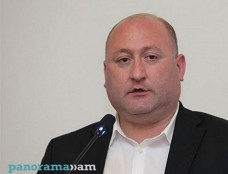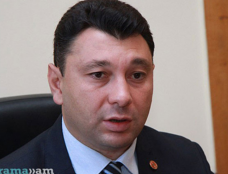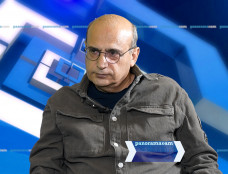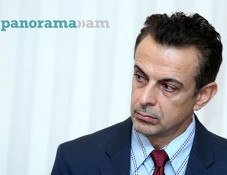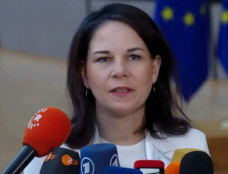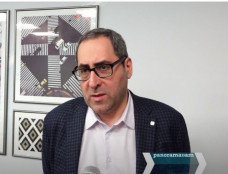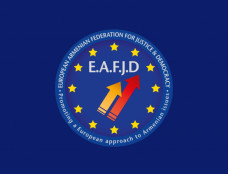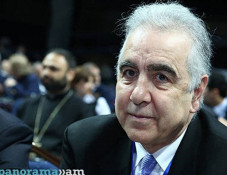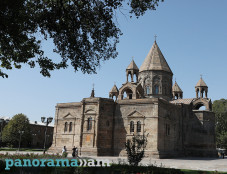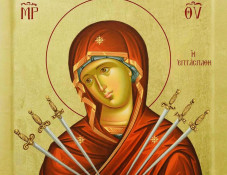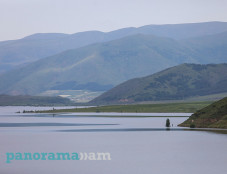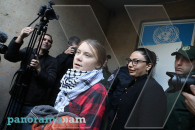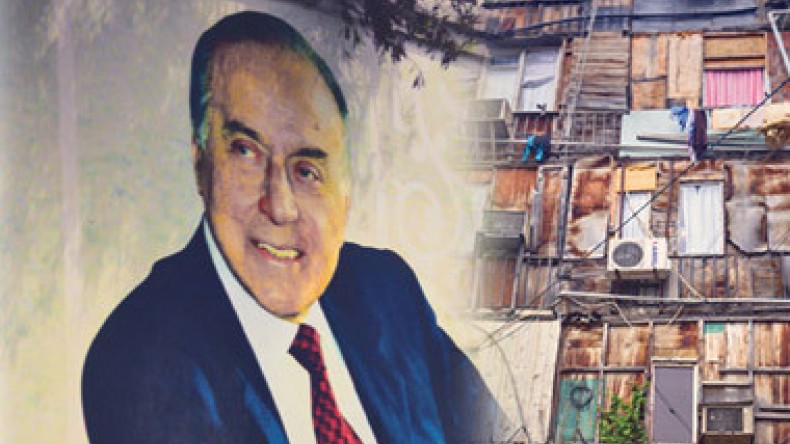
British Magazine: Aliyev’s regime falsifies elections, violates human rights in Azerbaijan and buys Europe’s silence
The ruling family of the Aliyevs, have held onto power in Azerbaijan for the past two decades through a combination of fraudulent elections, arresting opposition candidates, beating protesters and curtailing media freedom, British Magazine Red Pepper writes.
The Article notes that Ilham’s father, Heydar Aliyev, became president in 1993, following a military coup. In 2003 he was forced to withdraw from the presidential elections due to ill health and his son stood and won instead. The elections were widely recognized as fraudulent. The Aliyevs’ rule has been facilitated by the signing of the ‘contract of the century’ in 1994, which brought 11 corporations, including BP, Amoco, Lukoil of Russia and the State Oil Company of the Azerbaijan Republic, into a consortium to extract oil from the Caspian Sea.
“The money from that oil not only made these corporations huge profits, but also gave the Aliyev family vast wealth and important allies overseas. The oil revenue means the regime is not dependent on taxes, so there is little incentive to pay attention to citizens’ voices or interests,” the magazine notes.
Mirvari Gahramanli, who works at the Oil Workers Rights Protection Organisation union, blames BP for the country’s autocratic president: “BP is where the president got his power from. What is he without the money? Where is his wealth, where are his police, without BP’s money? They [the Aliyevs] have grown rich from BP and now as a result they have much more power,’ she said.
The British magazine notes that the money from the oil industry was supposed to be controlled by the State Oil Fund for Azerbaijan (SOFAZ), which was intended to finance the transition of the Azeri economy away from oil and to ensure the wealth was kept for future generations. Instead much of it has been pumped into construction.
The author goes on saying, arrive in Azerbaijan’s capital city, Baku, at night and it seems like one of the most opulent places on earth. However, a daylight walk reveals a different side to the city. The opulence is still evident in the pristine shopping streets, filled with bright plazas and innumerable designer shops – most of which are empty. But walking down a side street is like stepping backstage on a film set.
“Dust and debris are everywhere; whole buildings are torn apart, spewing their dusty interiors onto the street. Baku is a city permanently under construction,” the author writes.
The Article reads that Baku’s highest skyscrapers, the Flame Towers. They were built at a cost of $350 million but appear mostly unused.
Who is benefiting from Baku’s continuous state of demolition has been made clear by the work of Azeri journalists. Khadija Ismayilova has linked many of the construction projects with the president and his family, the author notes. She says that these include the building of Crystal Hall, which staged the Eurovision Song Contest in 2012, and the nearby State Flag Square, which cost $38 million, etc. Two-thirds of the cost of the square in Baku came from the reserve fund of the head of state and the other third from the 2011 state budget, yet it was companies connected with Aliyev that profited.
“The list of enterprises the Aliyevs are linked to is extensive. It includes phone companies, gold mining and an energy infrastructure company. It is common for big infrastructure projects, financed by public money from oil revenues, to be distributed to companies that belong to high-ranking officials, including the president himself. New laws mean that ownership remains secret, and they are often registered offshore anyway, so that public accountability is impossible,” the article reads.
Khadija Ismayilova’s part in exposing the personal profits made by the Aliyev family has led to her being blackmailed. Threatening and persecuting campaign started against her.
“In Azerbaijan there are almost no independent media; most newspapers and nearly all TV channels are controlled by the government. Khadija Ismayilova’s experience is unusual only in that she didn’t find herself in prison or hospital – or the morgue. In 2005 the founder and editor of the critical opposition weekly news magazine Monitor, Elmar Huseynov, was gunned down in his apartment building. He had received threats because of his writing and many in Azerbaijan believe he was murdered because of it,” the British magazine writes.
The author of the article notes that the Azerbaijanis are furious at how their money has been squandered. Despite the opulence in the center of Baku, citizens have to pay large sums to use basic services, including healthcare. Much of the county’s infrastructure is in need of repair.
“A new generation is finding new ways to organize through Facebook, blogs and flashmobs. People are talking about when Aliyev will go rather than if. With Baku hosting the Eurovision Song Contest, the rising protest movements had an opportunity to generate international attention, although it didn’t stop the government responding with continued repression. In October, 200 Muslim activists protesting against a ban on hijabs in secondary schools clashed with the police outside the education ministry. Seventy-two were arrested – the majority of whom were still being detained six months later,” the article reads.
The author recalls the protests in Ismaili in January where, “the drunken son of the labor minister crashed his SUV into a taxi and then beat up the driver.” In response, local residents set fire to his truck, as well as other vehicles and hotels belonging to the same family. The incident rose into mass riot and a state of emergency was declared in the town and neighboring regions. Volleys of tear gas filled the streets as a militarized police force marched in. Cafes were closed down and the internet censored. The troops stayed for over a month in a show of force.
“With the regime afraid of change, it is resorting to ever-greater violence and repression. In the run up to presidential elections set for October there are increasing numbers of arrests,” the author highlights.
Pushing the Aliyev family out of power will be a difficult process. It is made even harder by the actions of the government’s allies in the west. On a recent trip to Brussels, Aliyev promised two trillion cubic metres of Azerbaijani gas for Europe. At the same meeting European Commission president Jose Manuel Barroso praised Azerbaijan for the progress it had made on democracy and human rights.
“It was recently announced that the formal signing of the final part of the mega-pipeline agreement between the Shah Deniz consortium and the Trans Adriatic Pipeline (TAP) looks likely to happen in mid-October. This means it will coincide with the Azerbaijan presidential elections and will effectively silence those in the EU Commission who wish to speak out about Azerbaijan’s political prisoners and fraudulent elections. Azerbaijani democracy activists accuse the country’s dictator, Ilham Aliyev, of manipulating the timing to ensure the EU is not critical of his regime’s appalling record on human rights and democracy,” the author concludes.
Newsfeed
Videos





